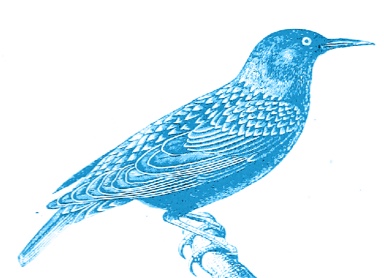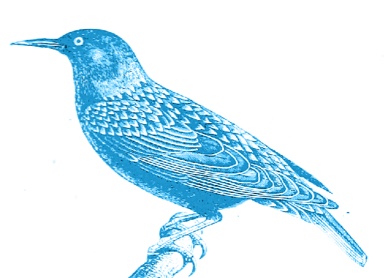Alison Gopnik, author of “The Philosophical Baby: What Children’s Minds Tell Us About Truth, Love and The Meaning of Life,” and professor of psychology at University of California at Berkeley, joined forces with seven mom bloggers on themotherhood.com to lead a Talk about baby brain power.
The conversation opened a door into minds of our children – with some surprising and interesting revelations! Read further to learn about how babies perceive their surroundings, develop language skills and learn.
Alison and co-hosts, thanks for your incredible insights!
Working with Babies
The scientific problem was that we can’t talk to babies directly, and even with young children, when we ask what they think, we’re likely to get a beautiful story about ponies and birthdays. So we have to look at what babies do and where they look instead of what they say. (Alison Gopnik)
Much of what we’ve discovered are things that moms and other caregivers suspected intuitively all along. Things like the idea that your baby can recognize you, or responds to your emotions. But we couldn’t prove all that scientifically until quite recently. For instance, we could put a baby in a cradle with speakers on either side and play mom’s voice in one speaker and another mother’s voice in the other speaker. Then we can see whether the babies turn towards their mom’s voice – and in the first MONTH of life, they do. (Alison Gopnik)
Infant Language Development
This is a great chat! We have a lab at Carnegie Mellon that studies infant language and learning. My kids have been research subjects, and the lab director has given talks at the campus childcare center. http://www.psy.cmu.edu/~thiessen/home.html (Clumber Kim)
When we talk to babies, we all use a funny voice called “motherese,” sort of high-pitched and exaggerated. We can’t help it even if we try! It turns out that that funny voice actually makes the sounds of language easier to learn. So naturally and unconsciously, we’re helping babies to learn how their language works. (Alison Gopnik)
The data about signing are complicated. Babies are very good at understanding gestures at a very early age, and they can certainly learn to sign easily, and it’s fun. There’s no very good evidence that it makes them smarter or better at spoken language later. (Alison Gopnik)
We did a lot of sign language with my second daughter because of a speech delay that was diagnosed as a toddler. Yet despite the speech delay (apraxia) she still had excellent language comprehension – sign language gave her an additional way to express herself when the words wouldn’t come out. (mommystory)
Like anything, it’s the parental involvement more than what is being done. If you use sign language, you probably talk and connect with your child more. (albertamel)
Infant Learning
There are some nice recent studies in our lab (you can find them on my Web site, www.alisongopnik.com) that show that babies are using the same methods as scientists. They pay attention to statistical patterns, they experiment (we call it play) and they learn from the experiments of others (we call it imitating). And they even make up wild hypotheses about how other people work (we call it pretend play). (Alison Gopnik)
Often when moms hear how much babies can learn, they think, “I should be more like a school teacher – crack out the flash cards, etc.” But that’s just the opposite of what the studies show. The best learning comes through playing with someone who loves you. (Alison Gopnik)
Makes sense – I don’t know anyone who prefers to learn in a flash card manner. Make learning part of playing and it comes more naturally! (mommystory)
And we’ve also discovered things about babies that even mothers would never have suspected. Even babies, for example, have a first grasp of numbers and can do statistical analyses of what they see! (Alison Gopnik)
Its important to say that number learning, and all the rest of the great learning that goes on, is happening just in the course of babies’ everyday activities – counting games, playing with blocks, putting together mixing bowls. So just using number words with a young child can help them learn. (Alison Gopnik)
Yes, I’ve totally found this to be true! I counted everything (puffs, toys, etc) even when my little one was tiny and later she picked it up quickly! (Sarah)
Infant Perception
Even very young babies will look longer at unexpected events or events that don’t fit a pattern they expect to happen. That’s one of the best ways we have of finding out about them. (Alison Gopnik)
So by asking the babies in their language (facial expression, tone of voice, etc.), and letting them answer by what they did instead of what they said, we showed that even these little ones could take someone else’s point of view, and help them to get what they wanted. (Alison Gopnik)
I was amazed when we took our baby to another country and she responded to people so well – even though she didn’t speak the language. She was relying on facial expressions, tone of voice and such, and was communicating with them! (Melissa)
I agree with you, Melissa. My boys, when they were babies – and even now, as they are older – were always exposed to my husband’s relatives that spoke only Spanish, and they were able to have communications and relationships with them that I couldn’t. The facial communications and sounds transcend the language barriers. (Kimberly at PPM)
The Hosts
The incredible mamas who co-hosted the Talk were:
Bing Yuan, Ice Fairy’s Treasure Chest
Christina McMenemy, A Mommy Story
Joey Fortman, Real Mom in the Media
Kimberly Ortiz, Pretty Pink Momma
Liz, Goddess in Progress
Melissa Angert, girlymama
Rachel Matthews, A Southern Fairytale
Victoria, Veep Veep
See the original Talk here: http://tmotherhood.wpengine.com/talk/show/id/62068


Take a Comment. Leave a Comment.
Read More ...
Influencer Marketing Resources: July 2025
Influencer Marketing Resources: June 2025
Influencer Marketing Resources: May 2025